Education and Socialization during the revolution
With the integration of the educational system of the Autonomous Administration, which is based on the principles of the democratic nation, with the Education Council, the entire community was included, creating a comprehensive societal system.
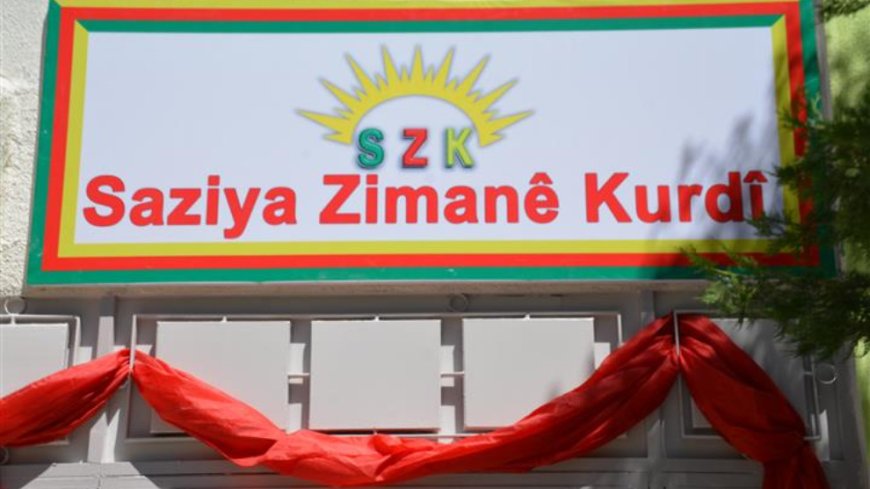
The educational system is one of the most vital issues focused on over the 12 years of the July 19th Revolution.
Education is defined as "qualifying, developing, and forming individuals within an intellectual and scientific framework based on specific principles, acquiring skills, and building a new generation accordingly."
Today, each educational system is presented as deemed appropriate, but the dominant system, based on authoritarian mentality, also affects education.
Before the July 19th Revolution, the educational system in North and East Syria was based on a single language, single culture, and single nation, suppressing and denying other languages, identities, and cultures, particularly the Kurds. Kurds were considered nonexistent, preventing them from playing their societal role even if given the opportunity to study.
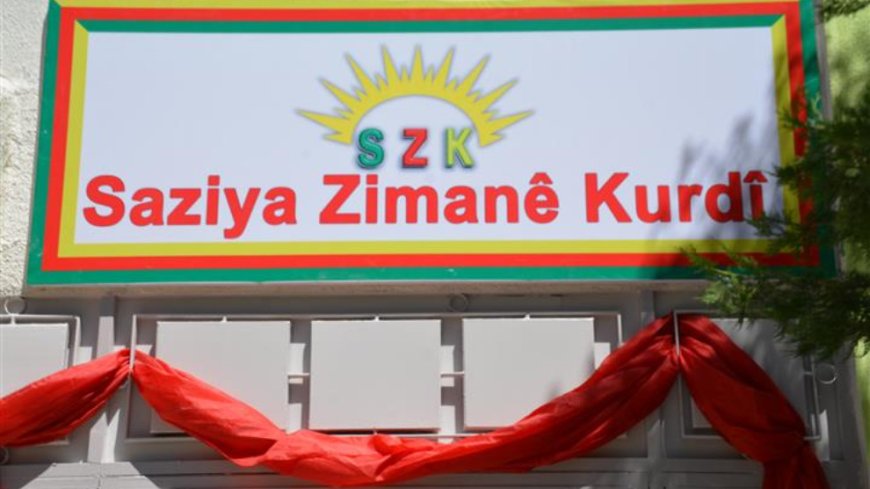
Until the July 19th Revolution, Kurds learned to read and write in their mother tongue secretly. The Kurdish Language Institute (SZK), established in 2007, continued its activities secretly in Aleppo, Afrin, Kobani, and Jazera, while the Syriac and Armenian communities learned their language and culture in some private schools.
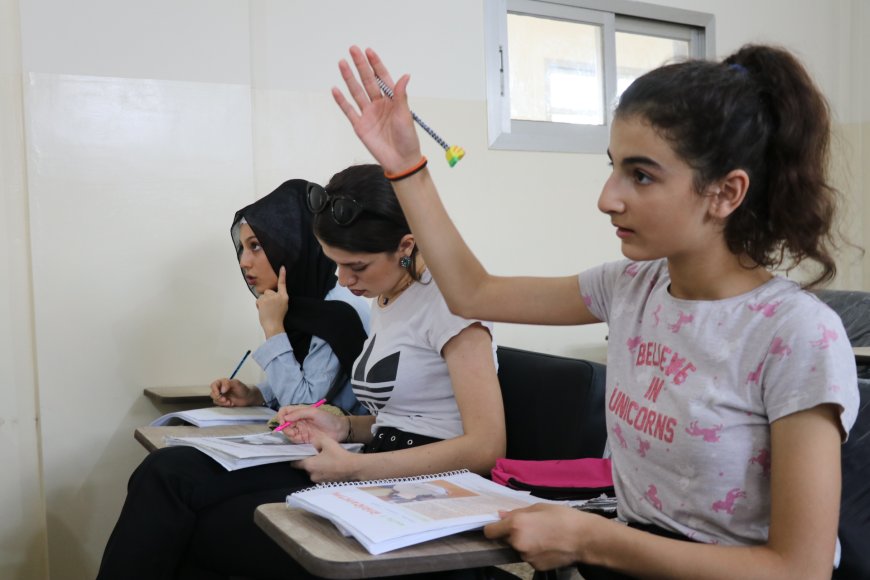
This situation changed with the start of the July 19th Revolution and the announcement of the Autonomous Administration system, initiating the construction of an educational system based on the democratic nation principle. Today, on the 12th anniversary of the revolution, a tangible educational system has been built, starting from primary schools and extending to universities and academies, training and educating all community members from ages seven to seventy in an ongoing effort to promote democratic culture.
The Kurdish Language Institute officially expanded its work from Aleppo to Dêrik between 2012 and 2013, opening over 100 schools, that young people, women, and the elderly received Kurdish language courses.
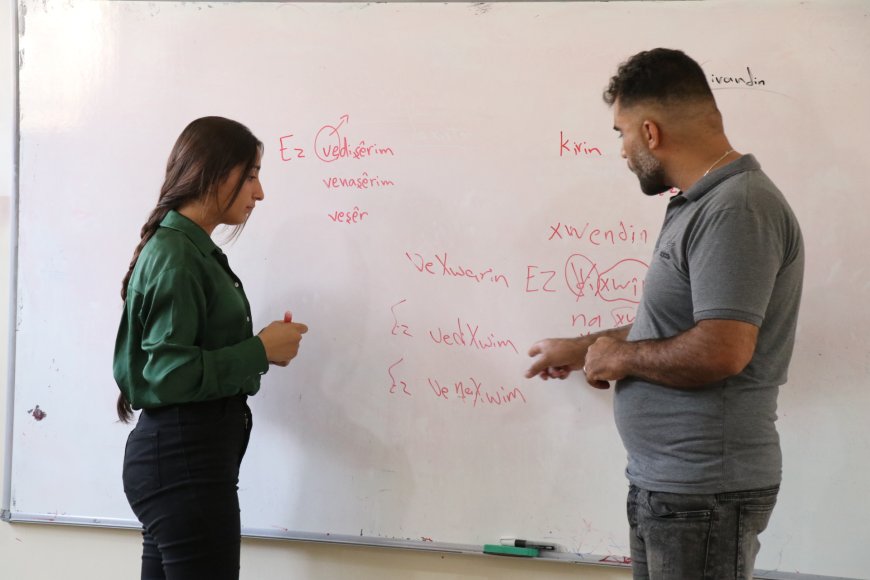
In early 2013, Kurdish was introduced as a subject in the official school curricula in addition to the schools of the Kurdish Language Institute, leading to the preparation and qualification of dozens of teachers.
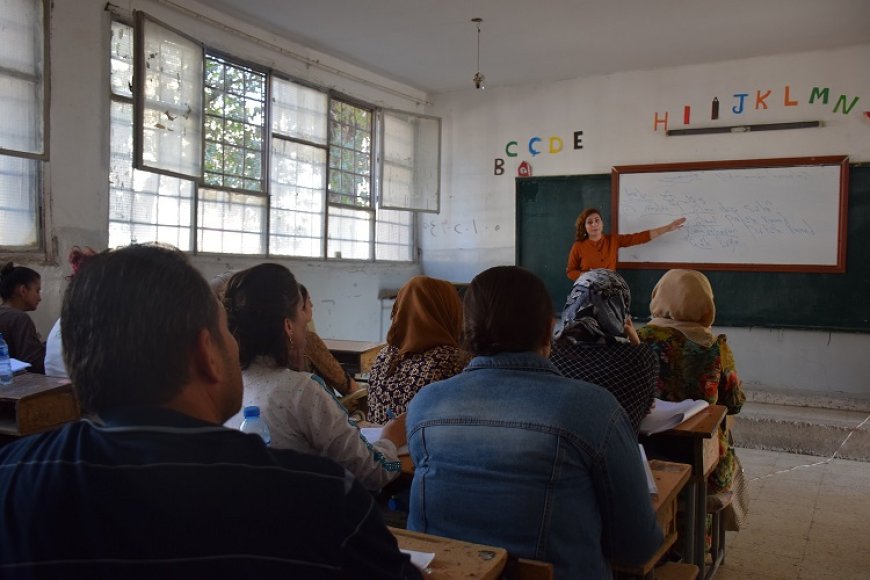
Institutes, curricula, photos and videos
To qualify and prepare teachers to teach in schools and to develop curricula according to the Autonomous Administration system, institutes were opened in most cities of the region in 2015.
Initially, curricula were prepared in these institutes, but with the system's expansion, a curriculum institution was established in 2016, preparing primary, middle, and high school curricula until 2019.
Article 7 of the social contract designates Arabic, Kurdish, and Syriac as official languages in the region, so all educational curricula were prepared in these three languages.
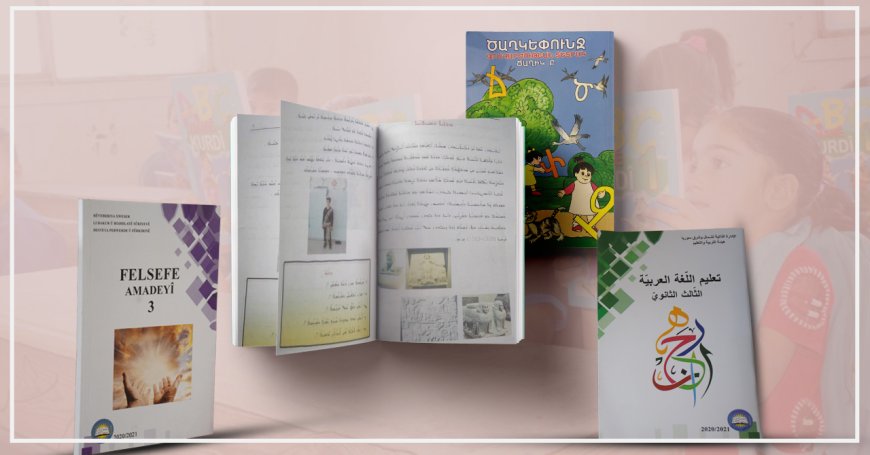
The Curriculum Institution developed subjects like mathematics, physics, chemistry, sciences, society and life, social sciences, culture and ethics, geography, history, philosophy, Islamic religion, Yazidi religion, history of religions, community languages (Kurdish, Arabic, Syriac), English language, music, sports, and arts.
Education Council
Following changes to the Autonomous Administration system this year and the expansion of the educational field, the educational system also underwent modifications, gathering all educational activities under the Education Council's umbrella.
Article 98 of the social contract defines the council as follows: "Composed of representatives from educational and relevant institutions, university council representatives, the Education Body, the Curriculum Institution, the Language Institution, the Teachers' Union, academic representatives, research and study centers, Genealogy committees, commune and people's council representatives, and the Students' Union. It sets educational strategies, teaches official and other languages within the Democratic Autonomous Administration, focuses on public awareness, develops the democratic nation mentality from nursery to university levels, and advances educational, cultural, and scientific projects for all community segments, establishing specialized institutions and academies to train educational staff."
Additionally, the Education Council's plans and decisions are implemented by the Education and Learning Body.
Different opinions
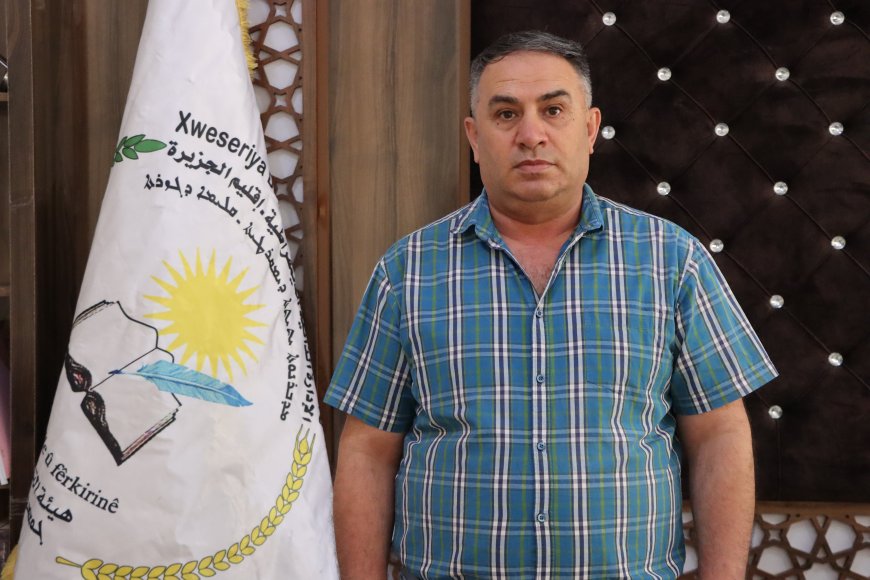
Mustafa Farhan, the co-chair of the Education and Learning Body in Jazera Canton, stated: "The goal of establishing the Education Council is to evaluate and make joint decisions. The council has been somewhat established, and committee meetings continue in the cities to gather opinions from all educational sectors to be part of the decision-making process."
Curriculum changes
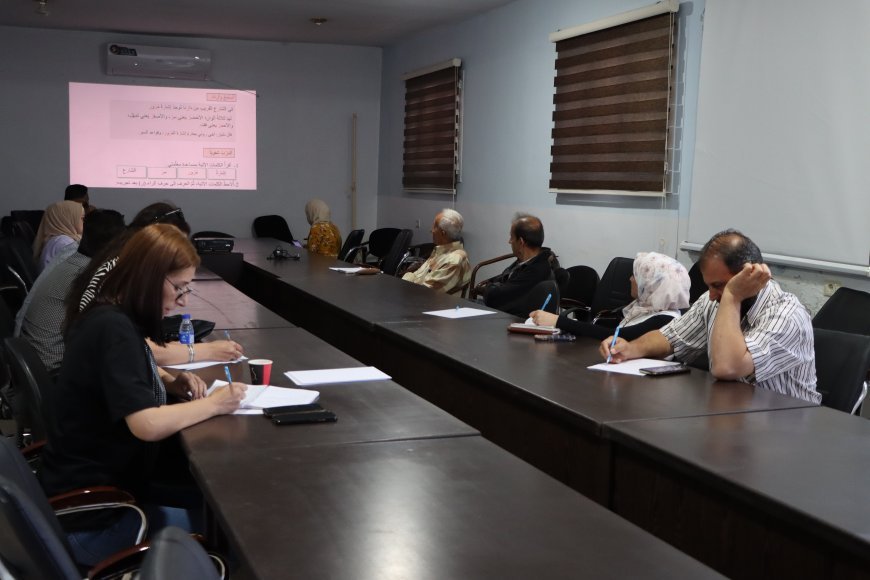
Alongside the changes to the system this year, work began on changing the educational curricula, which will occur in three phases, and training courses will be held to train teachers on the new curricula.
According to the Education Body in North and East Syria, the region has 4,175 schools, 41,509 teachers, and 837,466 students.
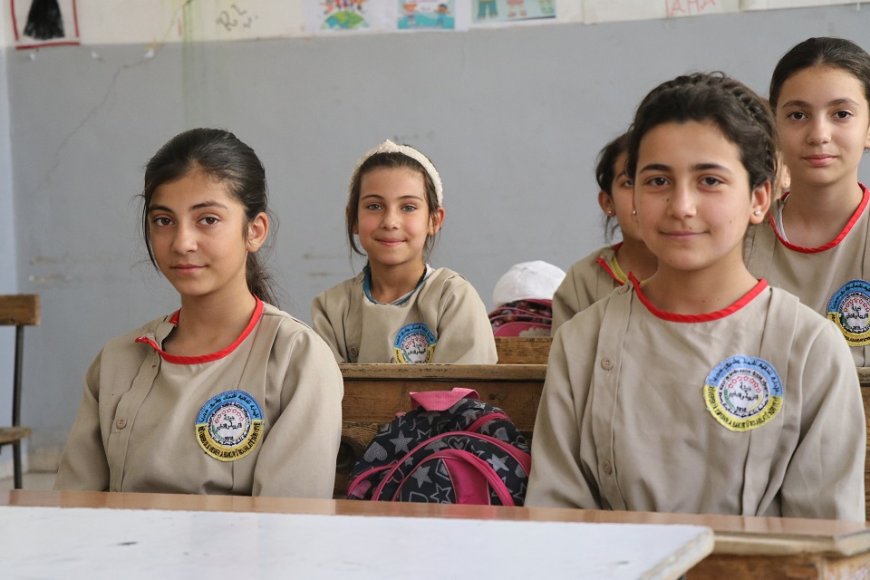
“We want students to participate too”
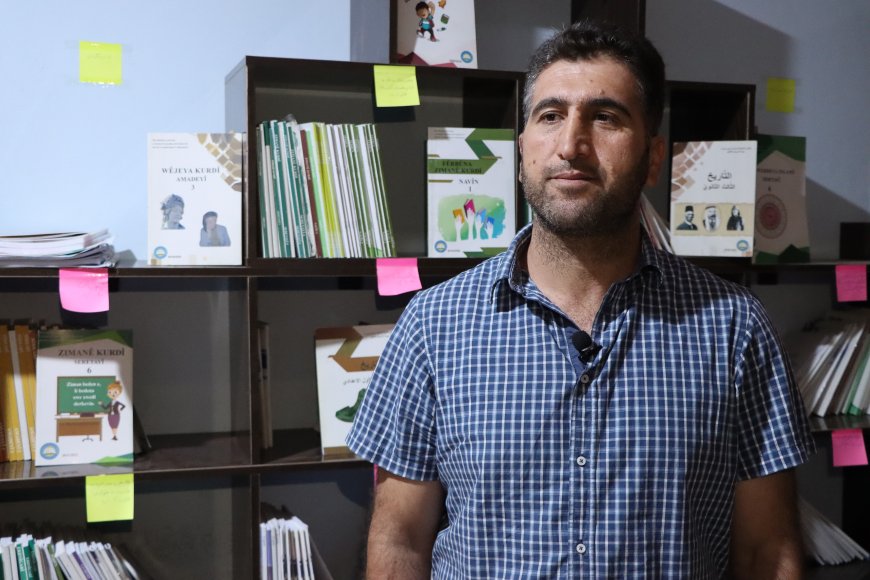
Havend Ibrahim, the co-chair of the Curriculum Institution, emphasized the need to change materials (curricula) according to needs, moving away from classical teaching methods. He said, "We want to make students part of the learning process, enriching our courses with discussions, dialogues, and experiments."
Democratic society academies
The concept of the democratic nation is explained to community members outside the educational system through academies. The first academy opened in Amuda in 2013 under the supervision of one of the founders of the democratic administration system, martyr Herekol (Hussein Shawish), under the name of the Nouri Dersimi Thought Institution. Subsequently, similar academies were established in various cities, and during the third academy conference in 2016, its name was changed to the Democratic Society Academy.
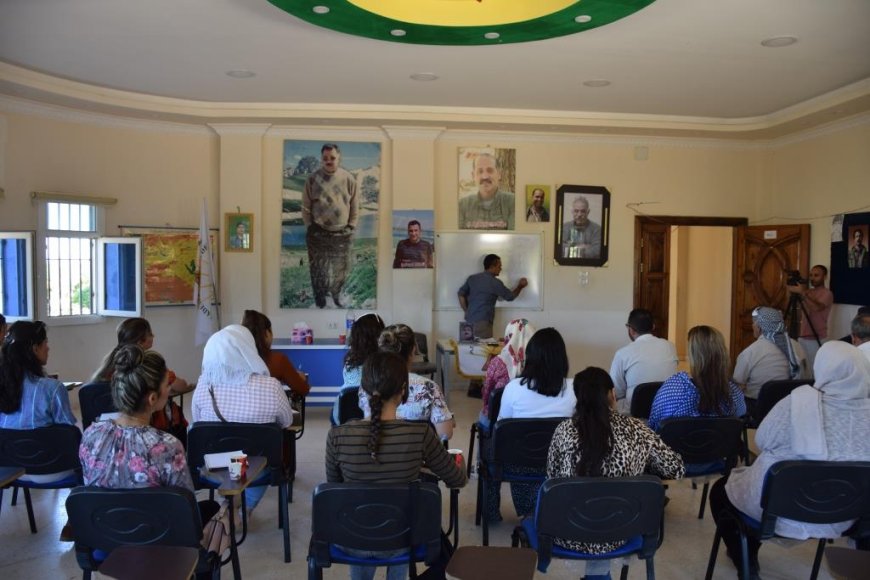
The 20 branches of the Democratic Society Academy spread across NE Syria conduct training and writing activities, with a Research Center for the Democratic Society Academy opened in 2016. These academies train all regional communities (Kurds, Arabs, Syriacs, Assyrians, Chaldeans, and Armenians) together on intellectual, philosophical, social, historical issues, the democratic nation system, and social sciences, in Kurdish and Arabic languages.
The academy provides all course materials in Kurdish and Arabic and publishes a bi-annual magazine called Democratic Society, each issue addressing a specific political, social, economic, or cultural issue.
"Training changes participants' lives"
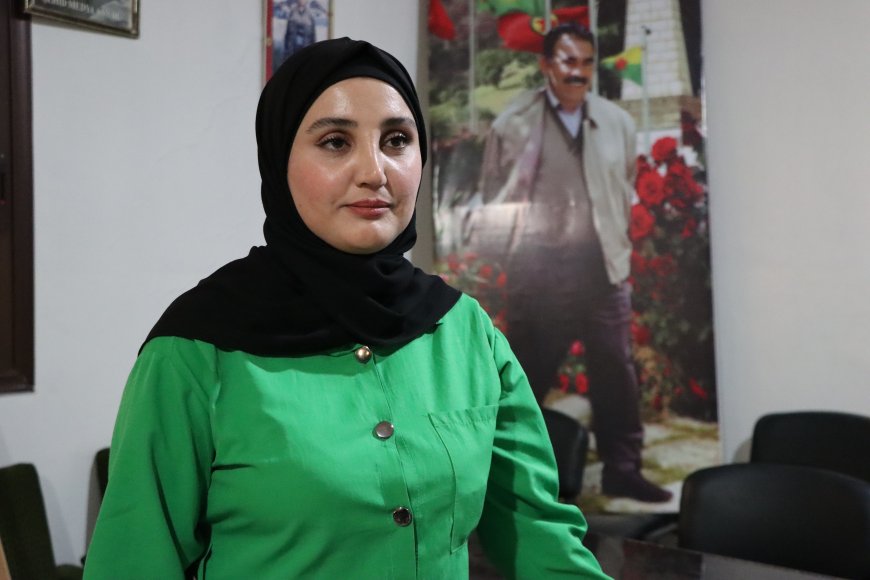
Iman Daquri, a graduate of the Democratic Society Academy, said that joining the academy deepens one's thinking, broadens horizons, and strengthens discussions, adding, "One finds answers to questions like how to know oneself, how to interact with one's environment, and how to live now." She believes that participation in training consequently changes participants' lives.
Institutional academies
In addition to the Democratic Society Academy, the Martyr Farhad Dêrik Academy, affiliated with the Autonomous Administration, was opened in 2024. All institutions from protection to economy, arts, women, and media have opened their own academies, training their respective field workers.
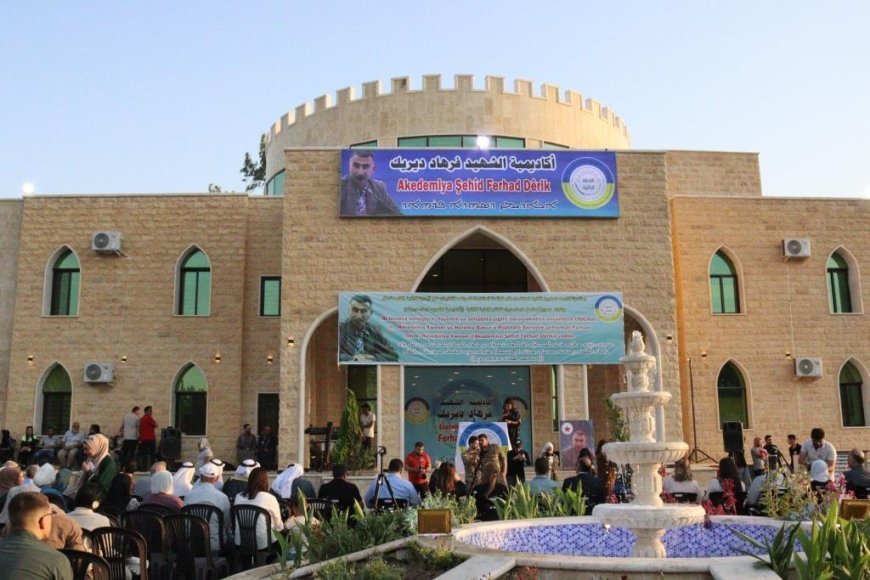
Universities
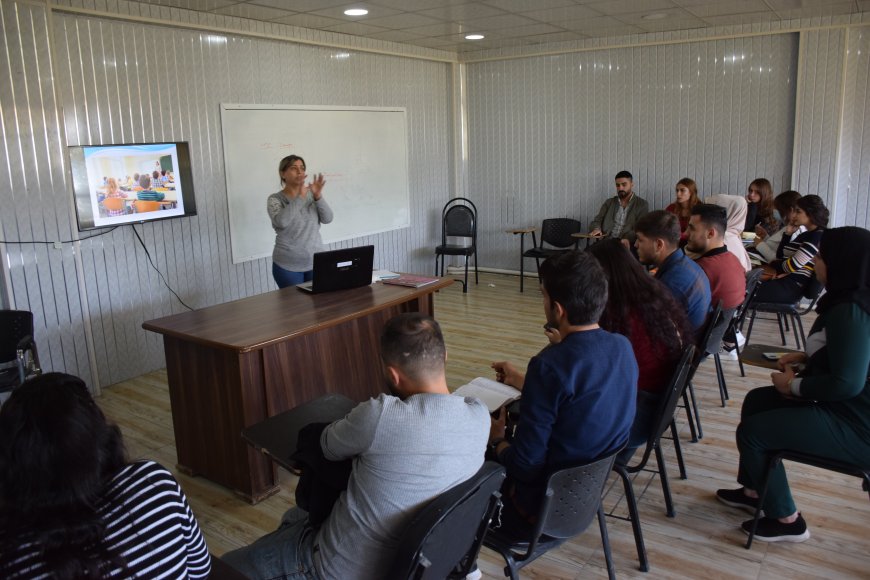
The democratic society education system was completed with the establishment of universities. Afrin University opened in 2015, Rojava University in Qamishlo in 2016, Kobani University in 2016, and the Al-Sharq University in Raqqa in 2021.
Today, Rojava University has 12 faculties and 3 institutes, Kobani University has 3 faculties and 5 institutes, and the Al-Sharq University has 7 faculties and 2 institutes.
According to the 3 universities (Rojava, Kobani, Al-Sharq), the number of students during the 2023-2024 academic year was 1,955 at Rojava University, 931 at Kobani University, and 267 at Al-Sharq University.
The 3 universities teach core subjects related to the democratic nation, sciences, politics, society, history, and literature. Rojava University has a specific department for women's studies (genealogy), while the other two universities offer it as a subject.
Afrin University
Afrin University was established in the center of Afrin city in 2015 as the first university in Rojava, comprising 4 faculties and 6 departments: the Faculty of Medicine, Faculty of Engineering (including agricultural and mechanical engineering), Faculty of Literature (including Kurdish language and media departments), and Faculty of Economics, with about 850 students. The university continued until the occupation of Afrin in 2018, after which its students continued their education in other North and East Syria universities.
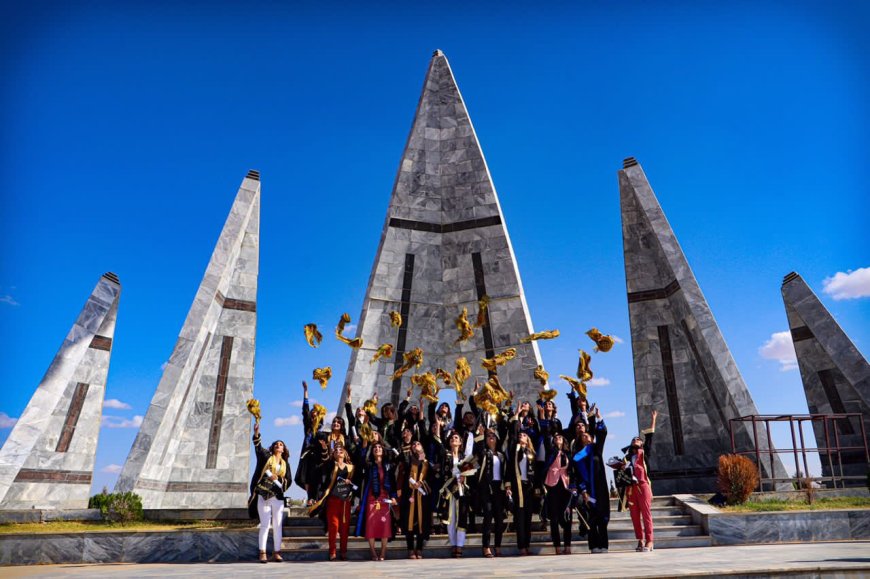
Graduates of these universities are appointed in Autonomous Administration institutions and bodies. During the 2022-2023 academic year, 798 students graduated from Rojava University, 510 from Kobani University, and 10 from the Al-Sharq University.
Some outstanding students continue their education at the same universities at the master's level, and though limited in number, some teach at these universities.
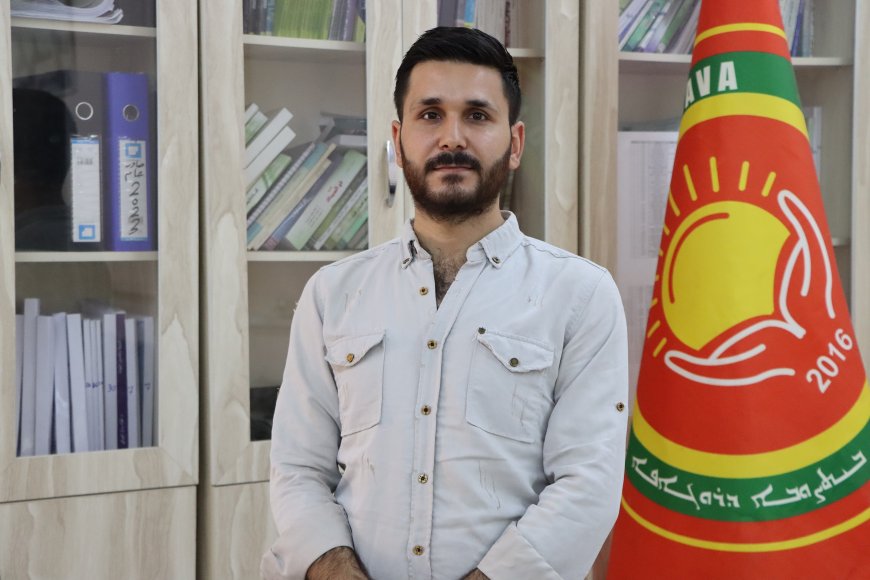
Isaaq Beko, a graduate of the agricultural engineering department at Rojava University who currently teaches in the same department, explained that the university system relies on evaluation and avoids rote memorization. He emphasized that students develop themselves in all areas this way, stating, "Students' capabilities are built on correct foundations, benefiting society as well. The primary goal is to serve society."
Cooperation with international universities
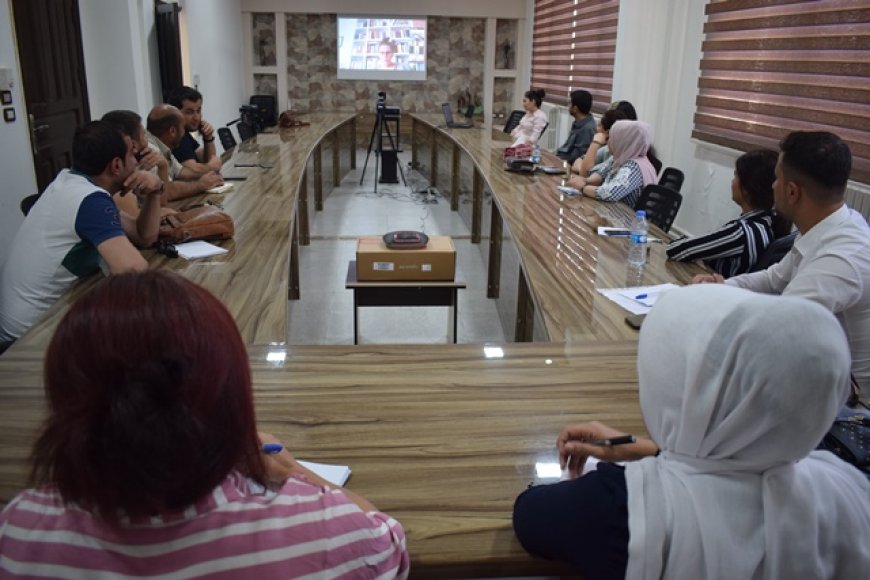
The 3 universities maintain relations with universities, academies, and institutes in other countries to introduce their system and gain international recognition. They have joint activities and relations with 13 universities and institutes in the USA, Italy, Germany, Iraq, and Southern Kurdistan.
ANHA













